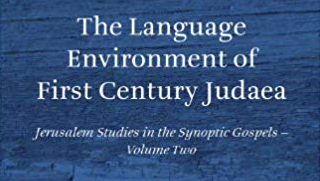A new collection of articles by Jerusalem School scholars has recently been released.
Foreword to Robert Lindsey’s A Hebrew Translation of the Gospel of Mark

It seems clear that Lindsey’s observations have provided a decisive new clue to understanding the synoptic relationships and an equally important clue to the correct approach to the Gospel of Mark.
From Luke to Mark to Matthew: A Discussion of the Sources of Markan “Pick-ups” and the Use of a Basic Non-canonical Source by All the Synoptists

The first article I wrote on the interrelationships of Matthew, Mark and Luke to each other and to other canonical and non-canonical sources appeared in the journal Novum Testamentum. With further research, however, I refined my hypothesis.
An Interview with Dwight A. Pryor

January 2009 marked the 25th anniversary of The Center for Judaic-Christian Studies. In the following interview, the Center’s founder, Dwight Pryor, surveys his life’s journey, and reflects on the dangers inherent in the “Jewish Roots” movement. Dwight’s words are a clarion call to those who are part of this renewal, and a sobering warning to those who would abuse the fledgling movement.
A History of the Intersection of JP, JS, & Brian Becker
Fifteen years ago, I met David and Josa Bivin at a seminar in Tulsa, OK, made possible by HaKesher. As an introduction, I would like to share with you the cord that weaves my life with David’s family.
A Personal Tribute to Professor Shmuel Safrai, Recipient of the Israel Prize
I would like to congratulate Professor Safrai on his award, and add a personal note: I have known Professor Safrai since 1965 when he was one of my instructors at the Hebrew University. I have spent literally hundreds of hours with him. Not only is Professor Safrai one of the greatest scholars that the Hebrew University has ever produced, he is also a mensch. Kind, well-mannered, and above all, patient, he has been a model of right living to his many students.
A Milestone in Halvor Ronning’s Life: Cause for Reflection

Last night I attended the birthday party of one of my closest friend, Halvor Ronning. Gathered around him were children, grandchildren and friends. Having lived 65 years, Halvor had reached a milestone in his life. There was good reason to celebrate.
Why I Am a Member of the Jerusalem School

The appeal of the Jerusalem School of Synoptic Research lies in the potential of its research methodologies to make the words and claims of Jesus clearer.
A Body, Vultures and the Son of Man (Luke 17:37)

“Wheresoever the body is, thither will the eagles be gathered together” (Luke 17:37; KJV), is certainly one of the most enigmatic of Jesus’ sayings.
A New Solution to the Synoptic Problem
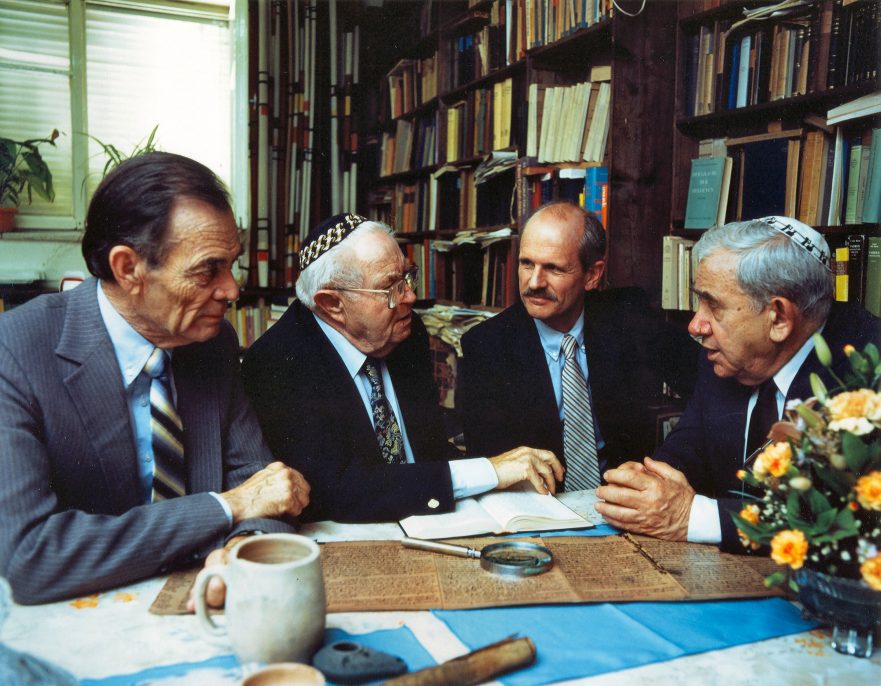
The many similarities among the Synoptic Gospels suggest a literary interdependence.
“And” or “But”—So What?
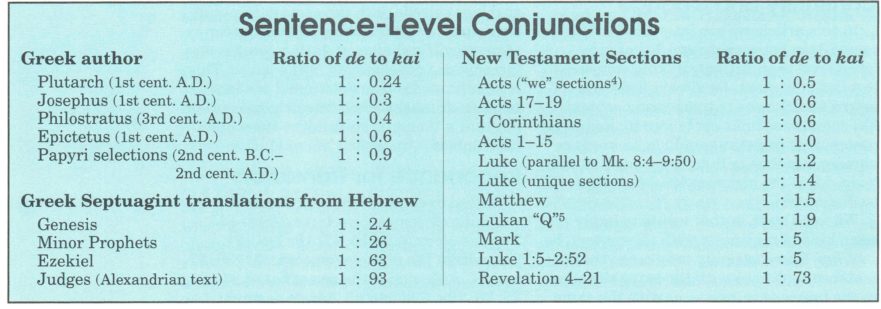
Writings that were originally composed in Greek tend to have a higher ratio of de to kai than writings that have been influenced by a Semitic language.
The New Testament in Modern Hebrew

In this series Dr. Ray Pritz, head of the Bible Society in Israel, describes the challenges faced by the Society’s translation committee in rendering the synoptic Gospels into modern Hebrew, and some of the solutions it found.
Views of the Jerusalem School of Synoptic Research

Underlying the research of the Jerusalem School is the hypothesis that the original biography of Jesus was written in Hebrew.
“Son of Man”: Jesus’ Most Important Title

There is a common thread uniting the views of those who think that Jesus signaled Daniel 7 by using the Aramaic bar enash in the middle of Hebrew speech. Anyone who holds this view must assume that Jesus spoke or taught in Hebrew much of the time. That Jesus used Hebrew a significant amount of the time is a sociolinguistic conclusion that has a growing number of supporters in New Testament scholarship, but one that is still a minority opinion.
Hebrew Idioms in the Gospels
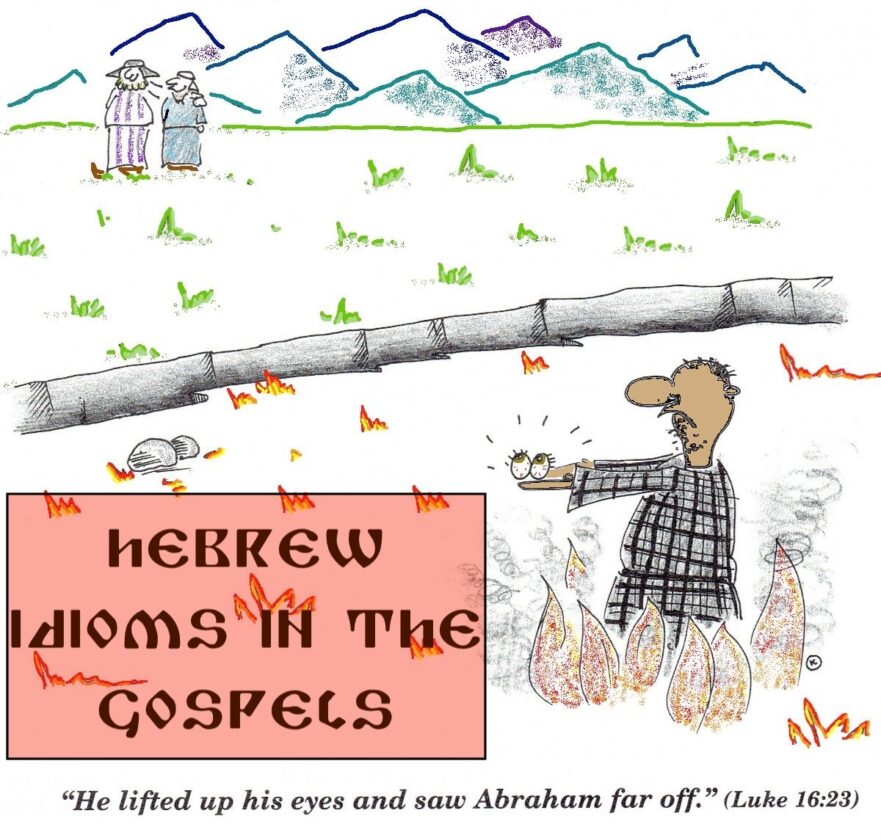
There are many expressions in the Greek texts of Matthew, Mark and Luke that seem to derive from Hebrew idioms. These are phrases that mean something different from the literal meaning of the words they use. Every language has its own idioms, many of which seem strange when translated literally out of their native setting.
Book Review: Brad Young’s Jesus and His Jewish Parables
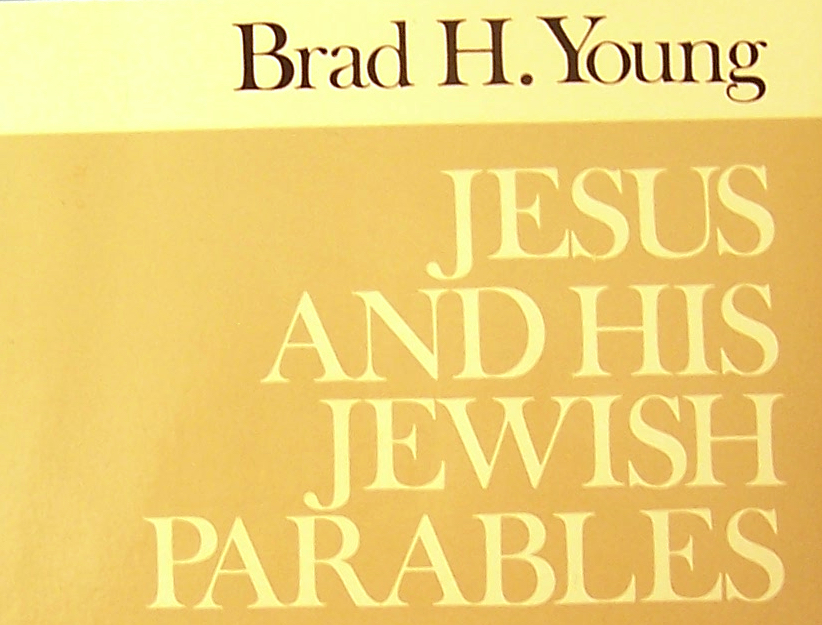
From the outset Young argues that the best way to understand what Jesus was teaching in his parables is to try to hear him as he spoke to his people. The author argues that this can best be done by analyzing the parables of Jesus together with those told by other rabbis of his day.
Discovering Longer Gospel Stories

Research by Robert L. Lindsey has helped clarify the process by which gospel texts were preserved and transmitted. Luke desired, he said in his prologue, to present to Theophilus an “orderly” account. Such ordering is to be noted in Matthew and Mark, as well. These attempts at ordering help us understand why so many of the synoptic gospel stories appear in a different chronological order from gospel to gospel.
Has a Gospel in Hebrew Been Found?

From time to time, one hears reports of the discovery of a portion of the New Testament written in Hebrew or Aramaic. To date, such reports have proven false. There is not a single extant Hebrew-language or Aramaic-language manuscript from the early Christian era of any of the New Testament books.
- Page 2 of 2
- 1
- 2

